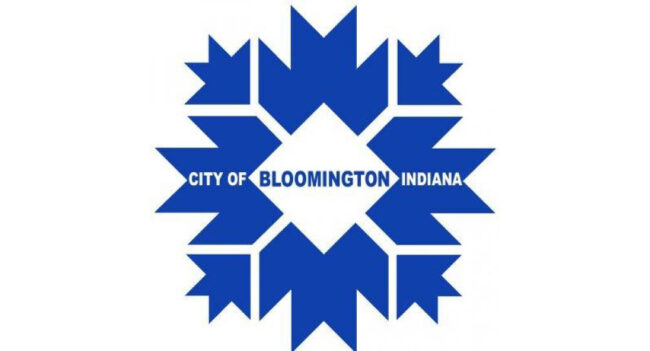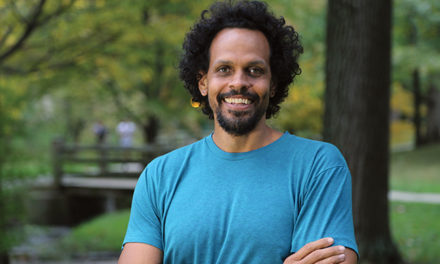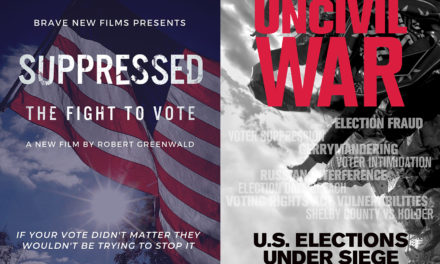
Editor’s note: The following is a press release from the City of Bloomington. Bloom has republished it here with minor edits for style and clarity.
A new resident-led task force has been named to review and make recommendations about law enforcement in Bloomington and Monroe County. The Future of Policing Task Force is being established as part of the City’s commitment to the reduction of racial inequities and continuous improvement of outcomes for all residents, as outlined in Mayor John Hamilton’s 2020 Recover Forward initiative and the City’s Plan to Advance Racial Equity.
The Future of Policing Task Force will actively work to develop a vision for policing that is:
- forward thinking.
- responsive to community needs.
- inclusive of diverse community voices.
- equitable in its implementation of policies and procedures regardless of race, age, gender, gender identity, economic, health, or housing status.
- provides appropriate protection for all residents, visitors, and law enforcement officers.
By evaluating all local law enforcement agencies’ policies, practices, and protocols (through focus groups, surveys, and other tools) and identifying current best practices in policing—in the U.S. and abroad—the task force will create an optimal vision of law enforcement for Bloomington and Monroe County for the next three to five years.
The group will gather for the first time this month, with a plan to offer reports to the community within 90 and 180 days after the first meeting. Within a year, the task force will present a report to community leaders, the City’s Board of Public Safety, and all law enforcement agencies of its findings and practical recommendations for rectifying inequities described in the report, which will be available for public review and comment. The task force will also evaluate the feasibility of national accreditation for those local agencies that are not currently accredited.
The following community members will work together as the Future of Policing Task Force:
- Carolyn Calloway-Thomas, chair, Indiana University African American and African Diaspora Studies; City of Bloomington Human Rights commissioner.
- Kevin Farris, Ellettsville town councilor.
- A’ame Joslin, clinical assistant professor, IUPUC Department of Education; member, City of Bloomington Commission on the Status of Women.
- Treon McClendon, Dr. Martin Luther King Jr. Birthday Celebration commissioner.
- Malik McCloskey, Dr. Martin Luther King Jr. Birthday Celebration commissioner.
- Amy Makice, founder, Bloomington Center for Connection.
- David Norris, pastor, City Church for All Nations.
- James Sanders, electronics engineer, Crane Naval Surface Warfare Center; member, City of Bloomington Commission on the Status of Black Males.
- Jim Sims, president, Bloomington City Council.
- Garfield Warren, research scientist, Indiana University Department of Physics.
The following City staff members will provide administrative support to the task force:
- Beverly Calender-Anderson, director, Community and Family Resources Department.
- Michael Diekhoff, chief, Bloomington Police Department.
- Marissa Parr-Scott, office manager, Community and Family Resources Department.
The Future of Policing Task Force will activate and channel the community’s own resources and leadership to assess and chart future goals for local law enforcement. The formation of the group is the next phase in a long-term, community-based collaborative process for addressing systemic racism and other forms of discrimination in Bloomington. The process was proposed in the December 2019 report by the Divided Community Project (DCP)/Bridge Initiative, a team of mediators based at The Ohio State University Moritz College of Law engaged by the City in 2019 when issues surrounding racism led to the temporary suspension of the Bloomington Community Farmers’ Market. A team of eight Bloomington residents that developed the City’s racial equity plan and designed the task force process was trained at the DCP’s Second National Academy in March 2020 to facilitate the development of a community-led process.
“This resident-led task force can provide a vital and timely community perspective on law enforcement in Bloomington and Monroe County,” says Lisa-Marie Napoli, a member of Bloomington’s DCP team and director of the Indiana University Political and Civic Engagement Program. “The collaborative, community-based framework allows a process to give voice to residents’ expertise, real concerns, and lived experiences around policing, and channel these insights to local leaders.”














